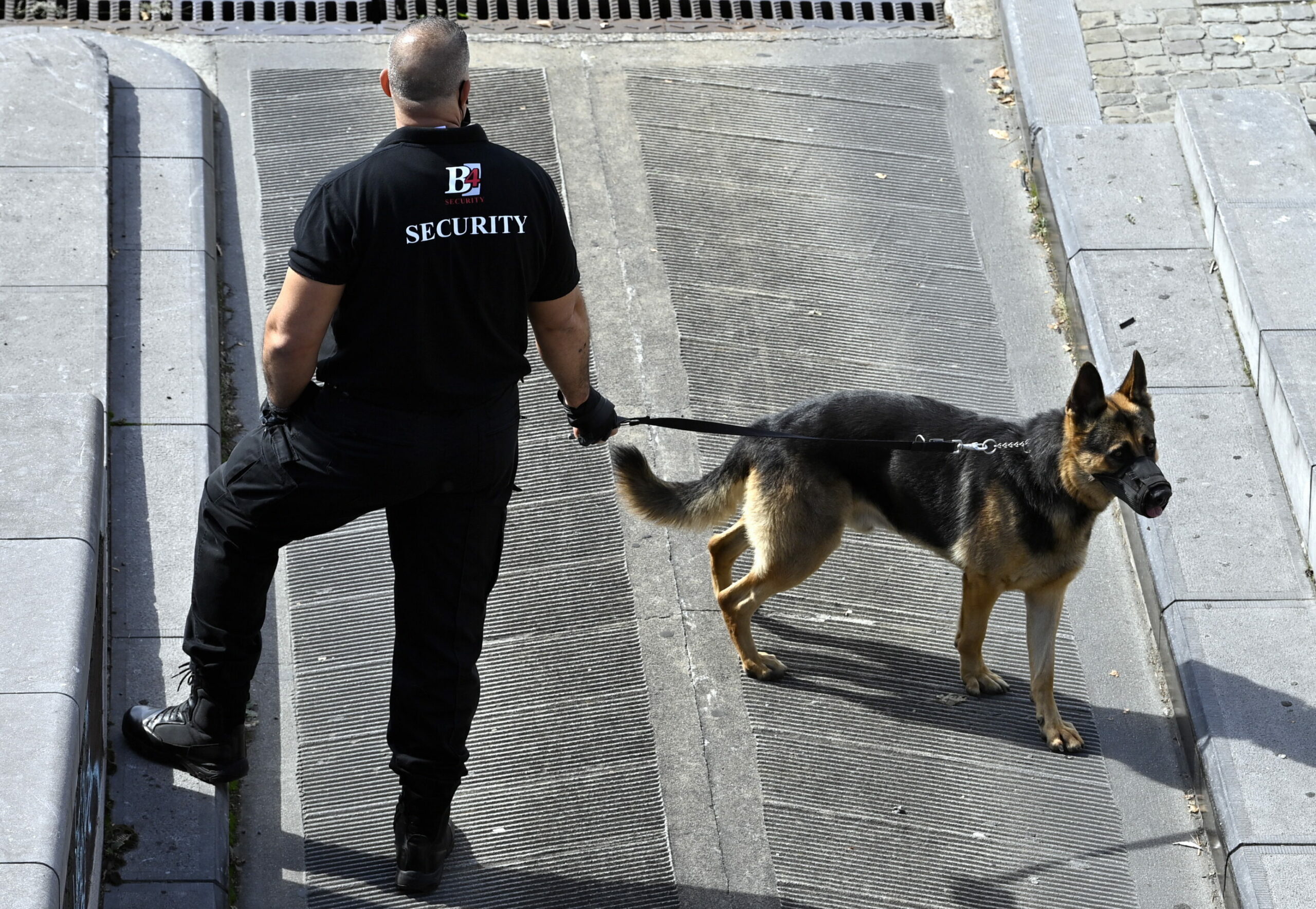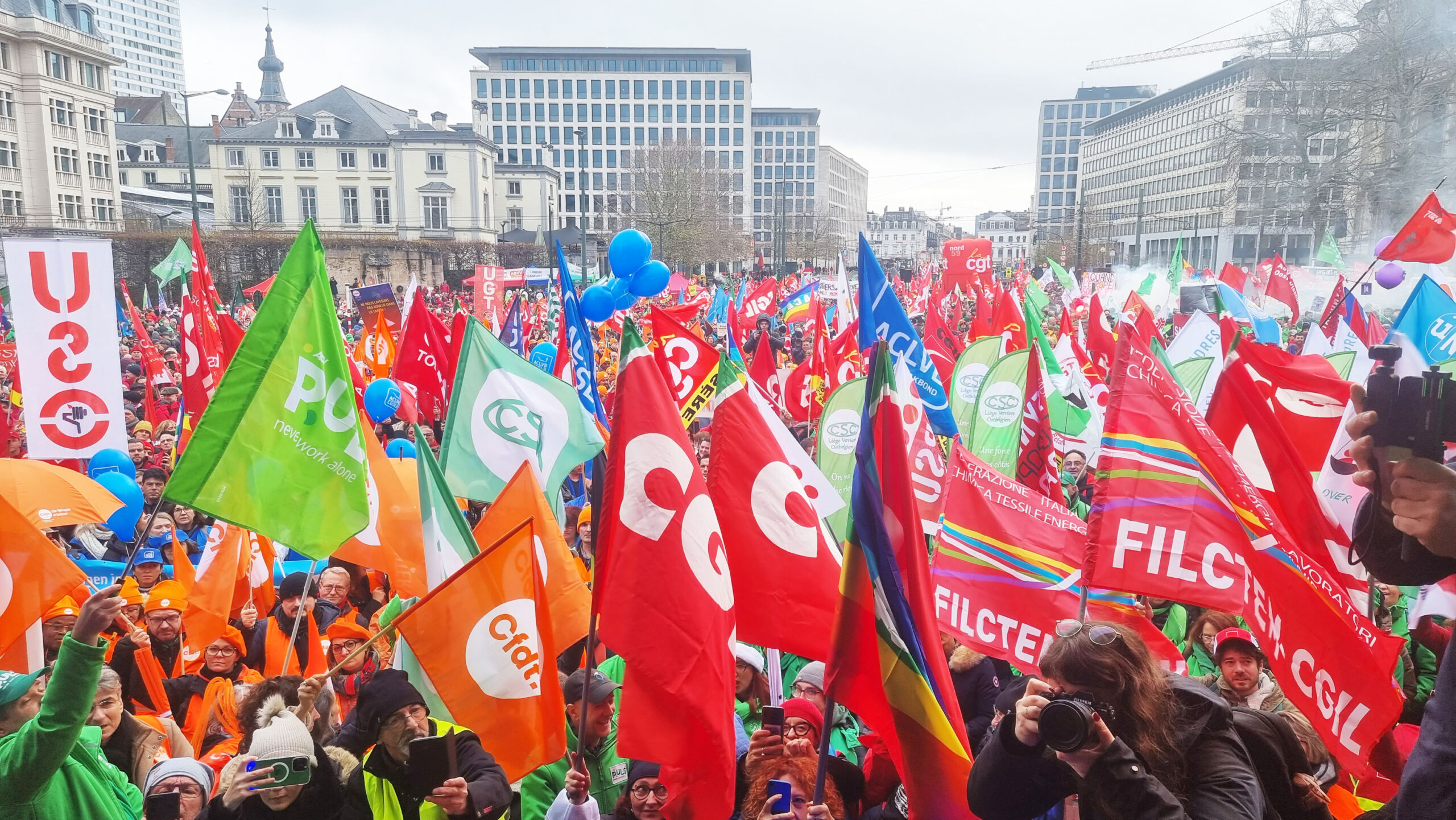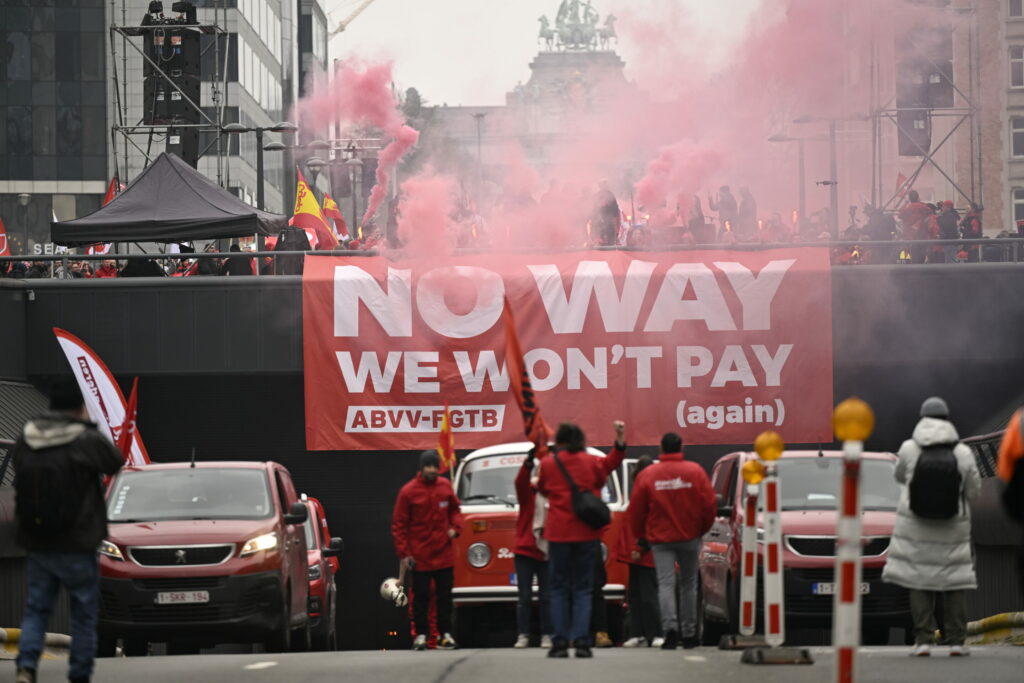Essential workers from Europe, including Belgium, will demonstrate in Brussels this October to protest the "race to the bottom" for working conditions in the European Union.
Over 1,000 cleaners, security guards and food service employees will take to the streets of Brussels on 1 October at Place Jean Rey from 12:00, in a joint call for urgent reforms of the EU public procurement directive.
Through these rules, private firms are contracted by public authorities to deliver goods and services, directly affecting pay and working conditions.
Due to procurement rules favouring the lowest bidder, nearly half of all public tenders across the EU are awarded solely based on the lowest price – according to research by the European trade union federation UNI Europa, one of the co-organisers.
Unions say this has a direct effect on the quality of public services across the EU, mainly due to the mix of financial pressure on public authorities and public procurement rules that allow them to ignore social criteria in tendering.

A security guard and his dog outside the Liege criminal court, Monday 07 September 2020. Credit: Belga / Eric Lalmand
These types of contracts employ millions of workers in the EU – which amounts to around 14% of the European Union’s GDP. In 2022, Belgium spent 15.3% of its GDP on public procurements – above the OECD countries average (14,55%). In terms of the total government spending, the figure was 28.6% (below the OECD average).
According to EU data, Belgium awarded 37% of its tenders on the basis of the price alone that same year. Many employer associations for these labour-intensive sectors often complain about bidders cutting costs by ignoring social criteria, according to joint statements of the organisers.
'Stronger, not poorer'
These rules also undermine the promise made in July by European Commission President Ursula von der Leyen for quality jobs, quality services, fair competition and higher union representation.
"Public money should be an investment to make our communities stronger, not poorer," Oliver Roethig, Regional Secretary of UNI Europa told The Brussels Times on Wednesday.

Union members from across Europe during a demonstration against the European Union's plans to reintroduce austerity, in Brussels, Tuesday 12 December 2023. Credit: Belga / Hatim Kaghat
"Every seventh euro in the EU is spent through public procurement, which should build a foundation of decent jobs that support families, ensure quality services and uplift the common good," Roethig continued.
The challenges faced by essential workers will be at the centre of the demonstration. A 2023 survey highlighted how cleaning professionals who work irregular and unsocial shifts suffer detrimental effects of nighttime work on the health, well-being, and social inclusion of workers.
This year, UNI released another global survey highlighting the need to improve the working conditions of security workers, revealing that an overwhelming majority feel underpaid, unsafe, and in urgent need of union representation.
The General Labour Federation of Belgium (FGTB-ABVV), Confederation of Christian Trade Unions (ACV-CSC), and (General Confederation of Liberal Trade Unions of Belgium CGSLB-ACLVB) are all co-organisers with UNI Europa, alongside organisations from France, the Netherlands, Germany, Italy, Luxembourg and Norway.
"Essential workers are coming to Brussels to demand that these contracts respect collective bargaining so that public procurement becomes a pillar of shared prosperity across Europe," Roethig concluded.

